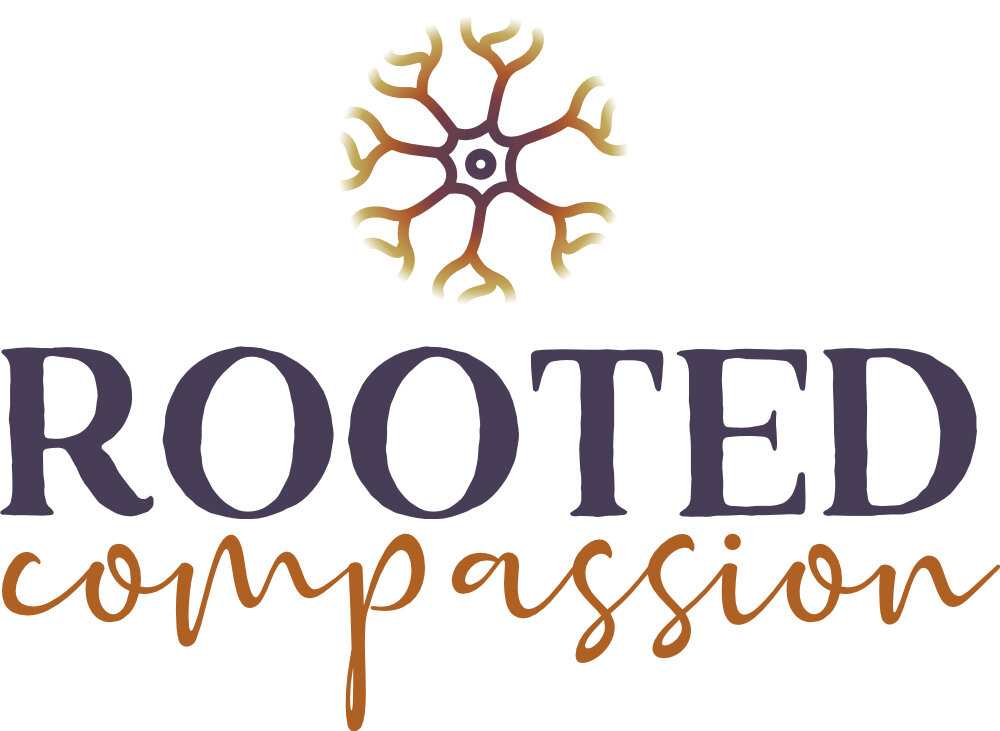A Big No Thank You to the Use of “Big T” and “Little T” Trauma
Have you heard people use the terms “big t” and “little t” trauma? I cannot even wrap my head around what this means. Are we categorizing trauma based on…what? What is the measuring stick for what is big and what is little?
Here is why these terms are unhelpful.
Trauma cannot be categorized across the board as it lies in the experience of it in our nervous system, not in the event itself.
When many people think about trauma, they think about a single event like a car accident or a series of events like going to war. Those traumatic events tend to be fewer in number than trauma we consider to be complex and developmental. Complex, relational, and developmental trauma stems from systems of oppression, like racism or homophobia. It can also be the result of physical, emotional, or sexual abuse and neglect.
Trauma isn’t defined by the event or series of events but in how a person receives and processes or doesn’t process the event or ongoing experience.
This primarily happens in the nervous system, which includes the entire body, not only the brain.
Consider two people involved in a car accident: They both see it coming, they both have similar physical injuries, and both physically recover well in the same amount of time. Why then would one person potentially walk away and think “Well, that was an irritating thing that happened, but I’m fine” and the other person’s response is “I don’t ever want to get in a car again. I’m too afraid.” The first person has potentially worked through the trauma of the car accident, and the second person continues to be affected by the trauma of the accident. The car accident is the shared experience, but how each person received and processed that experience is different.
Why people experience and process events differently is dependent on a number of factors, including past experiences or traumas, strength of relationships, and other resilience factors.
I remember years ago sitting in my own therapy sessions sharing something that was hard for me. The therapist said, “Well, that’s just a little t trauma.” Shame set in. If I was struggling this much with what she considered to be a little t trauma, what was wrong with me? I never spoke of it again to her. And, I found a new therapist.
In the trauma treatment offered at Rooted Compassion, we understand this concept and work to help you restore your autonomic nervous system to health and vitality. We do that through:
Counseling from the polyvagal perspective
Eye Movement Desensitization and Reprocessing (EMDR)
Acceptance and Commitment Therapy
Applied Polyvagal Theory in Yoga
Drama and expressive arts therapy
Emotional Freedom Techniques
Somatic Practices
Mindfulness Practices
Are you ready for a different look at therapy? Several of our clinicians have openings and are available to help!
Click here to schedule with one of our highly skilled, trauma therapists: www.rootedcompassion.com/contact
References:
Daffodils by Charles Deluvio on UpSplash
Amy Stenger-Sullivan (she/her/hers) is a Licensed Professional Clinical Counselor-Supervisor, trainer and CEO of Rooted Compassion Counseling and Consulting, LLC. As a Certified Trauma Responsive Counselor, Amy understands and applies knowledge of interpersonal neurobiology, Polyvagal Theory and Eye Movement Desensitization and Reprocessing (EMDR). Amy is an EMDR Certified Therapist. She specializes in utilizing and teaching about the nervous system to help people move into post-traumatic healing and growth.
The Rooted Compassion team is made up of a group of counselors who have a variety of specialties in order to best serve our clients. We recognize that every person has his/her own personal and unique life experiences and that one modality will not work for every client. Listed below is a summary of our counselors’ specialties at Rooted Compassion:
Emotional Freedom Techniques
Grief Counseling
Somatic Focused Counseling
EMDR
Cognitive Behavioral Therapy
Dialectical Behavior Therapy
Mindfulness-Based Practices
Trauma Responsive Care Techniques
Acceptance and Commitment Therapy
Drama Therapy/Expressive Arts
If you are interested in learning more about what Rooted Compassion is all about, please contact us today, look through our website, or find us on Instagram and Facebook.
Rooted Compassion Counseling is Ohio’s leading practice for trauma therapy through the lens of the nervous system. Our focus is to walk alongside clients as they heal from depression, anxiety, trauma, grief and/or loss. If you or someone you know are seeking to explore and build an inner sense of calm and safety, please contact us today. We would love to help you to find a counselor and counseling techniques that will guide you on your mental health journey to healing.



